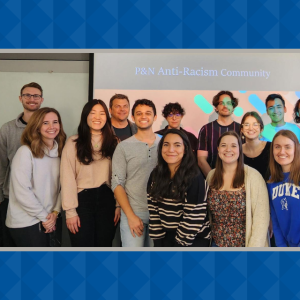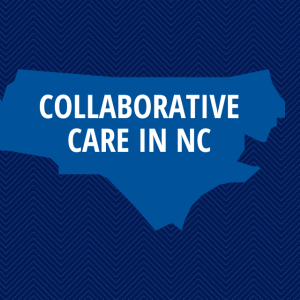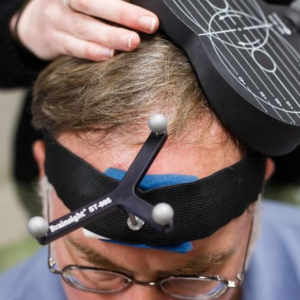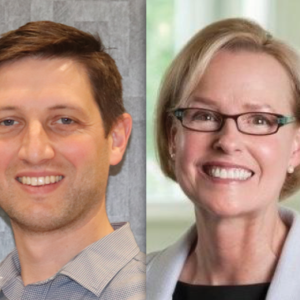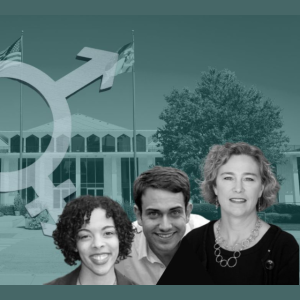Check out our news archive below to learn more about what’s happening in Duke Psychiatry & Behavioral Sciences!
Dzirasa Elected Member of the American Institute for Medical and Biological Engineering
Duke Psychiatry's Kafui Dzirasa, MD, PhD, has been inducted into the class of 2023 of the American Institute for Medical and Biological Engineering (AIMBE) “for his pioneering work in understanding the electrical patterns that underlie mental health disorders and his advocacy for inclusive science.”
Group Led by Duke Psychiatry Faculty Member Wins Graduate school Award for Inclusive Excellence
A community of graduate students and faculty from the Duke Clinical Psychology Program dedicated to fostering inclusive excellence recently won a Graduate School award for their work. Duke Psychiatry's Zach Rosenthal, PhD, who also holds an appointment in the Department of Psychology and Neuroscience, is the faculty lead for the group.
14 Ways to Build Academic Networks and Strengthen Faculty Communities
Duke's Office for Faculty Advancement has awarded seed grants to 14 new projects led by Duke faculty members, including a team in Duke Psychiatry seeking to increase neurodiversity competency of faculty at Duke.
Collaborative Care Model Gaining Traction in North Carolina
In response to the COVID-19 pandemic and an associated spike in mental illness, a multidisciplinary, multipayer team of leaders across North Carolina launched the Collaborative Care Consortium to drive implementation of the Collaborative Care Model. Duke Psychiatry's Nathan Copeland, MD, MPH, and Marvin Swartz, MD, among other Duke Psychiatry faculty members, are involved in the effort.
Collaborative Care Model Helps Duke Primary Care Meet Standards of Care
Use of the Collaborative Care Model at Duke University began on a pilot basis five years ago, when the University Health System awarded the Department of Psychiatry an innovation grant to establish the model at a handful of primary care sites. Duke Psychiatry's Marvin Swartz, MD, is the director of the Duke Area Health Education Center (AHEC), which is providing training and technical support to practices implementing collaborative care.
Davis Awarded $3.6 Million Grant to Boost Memory in Older Adults
Simon Davis, Ph.D., an assistant professor in the departments of neurology and psychiatry, was recently awarded a grant from the U.S. National Institute for Aging to study brain activity patterns that support memory function in aging adults. The $3.6 million grant will allow Davis and his colleagues to test whether a magnetic brain stimulation can improve memory in older adults aging healthy and those with an increased risk for Alzheimer’s disease.
Two Residents Receive 2023 James H. Carter, Sr. Community Service Award
Ryan Slauer, MD, a fourth-year internal medicine-psychiatry resident, and Lynette Staplefoote-Boynton, MD, MPH, a third-year internal medicine-psychiatry resident, have received this year’s James H. Carter, Sr. Community Service Award, established in honor of Carter’s dedication to serving the underserved.
Harnessing Electronic Health Record Data for Earlier Autism Detection
Signs of autism can hide in plain sight, but a Duke University School of Medicine study shows machine learning may help spot them. Duke Psychiatry's Geraldine Dawson, PhD, was the senior author in the study.
Duke University School of Medicine Ranks 9th Nationally in NIH Funding; Psychiatry Ranks 8th
Duke University School of Medicine was awarded more than $527 million in federal funding from the National Institutes of Health (NIH) in 2022, ranking ninth nationally among academic medical centers, according to the Blue Ridge Institute for Medical Research. The Department of Psychiatry & Behavioral Sciences ranked eighth.
Medical Experts Examine Impact of NC Bills on LGBTQ+ Youth
Two new proposed state laws targeting LGBTQ+ youth in North Carolina would drive up suicide rates, restrict health care providers and limit schools’ ability to provide safe havens for students, three Duke experts—including Duke Psychiatry's Dane Whicker, PhD, and Sarah Wilson, PhD—said Wednesday.

